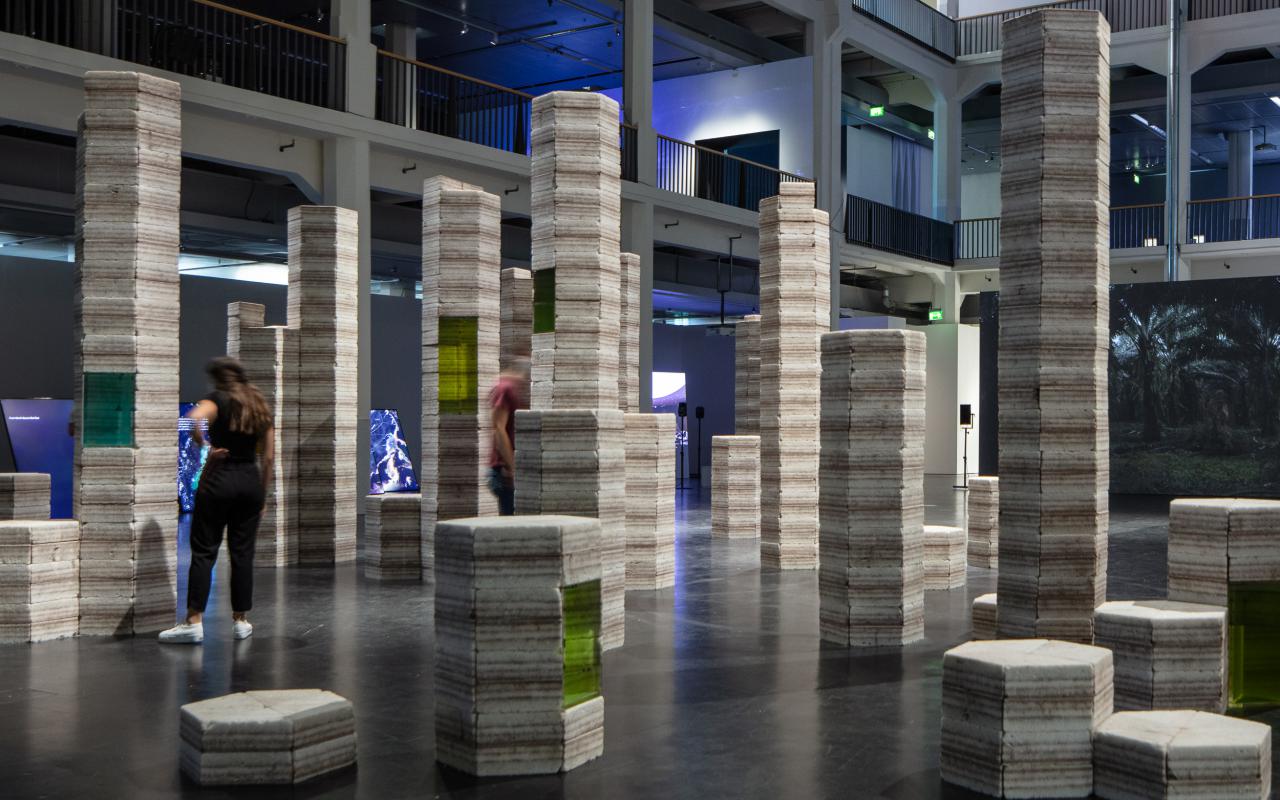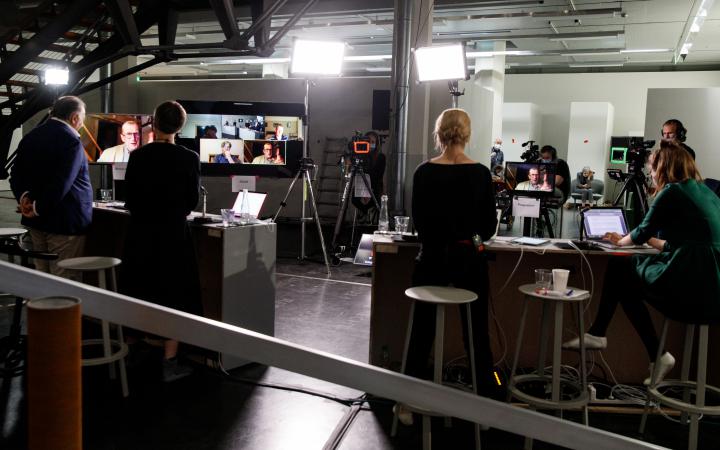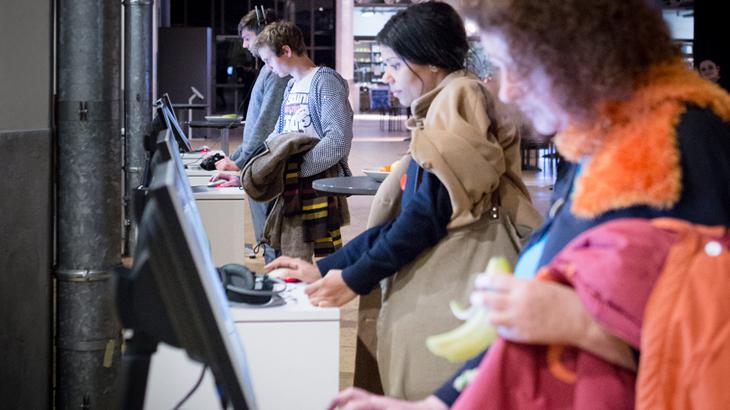
2014-12-19
Culture 4.0 – Now Loading?
What potential lies in net culture for art, culture and politics? In collaboration with the foreign office and the Cyberforum e.V., the symposium Culture 4.0, which took place at the ZKM Media Theater on December 9, 2014, followed up on this question.
In this connection the title is not to be understood in a strictly literal sense, but rather as metaphor. »4.0« does not stand for a higher-faster-further competition, but addresses the transformations within the culture industry. »Culture 4.0« draws attention to the scope and the challenges that have emerged by way of the »digital turn«. This provided for elementary changes in culture production, reception and education.
Thirteen international speakers from France, Germany, Brazil and Argentina show us ways in which we encounter these far-reaching changes and how we can use them in creative ways. Each speaker presents the range of opportunities of net culture for cultural exchange against the background of his individual professional origins and perspectives.
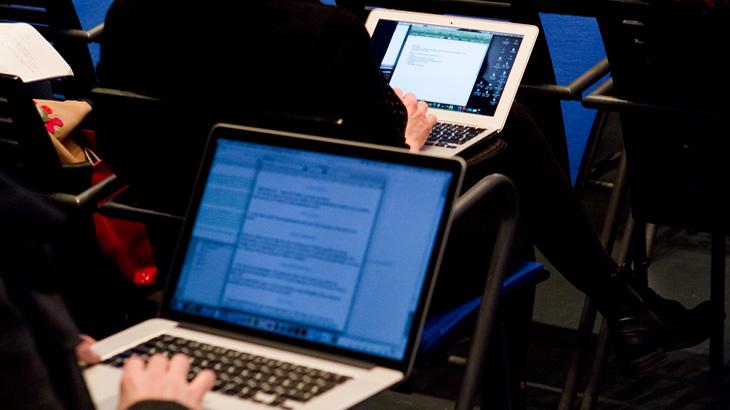
Everything is Digital. Culture is Digital.
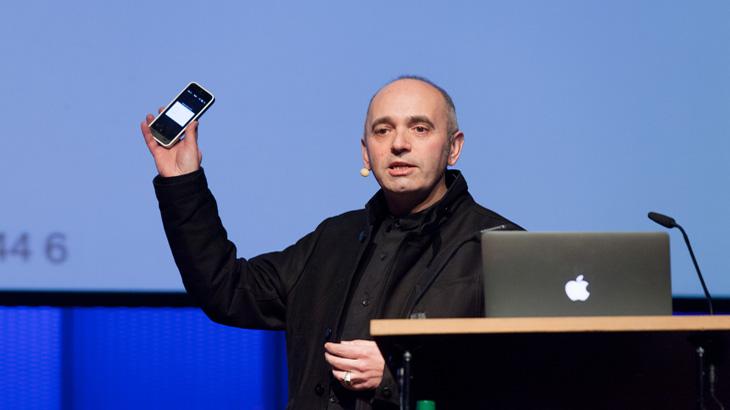
#MenschOrtWeb is the reference system on which Frank Tentler draws for developing his projects. He develops and produces communication and marketing projects for institutions and businesses in the »social web«. In his keynote address, he explains his concept of digital spaces of experience, which he describes by way of the term »smartplaces«. He understands by this term such places as museums and festivals which are both technically and communicatively optimized in such a way that visitors become emotionally involved: they offer sustained interaction, services and media exchange.
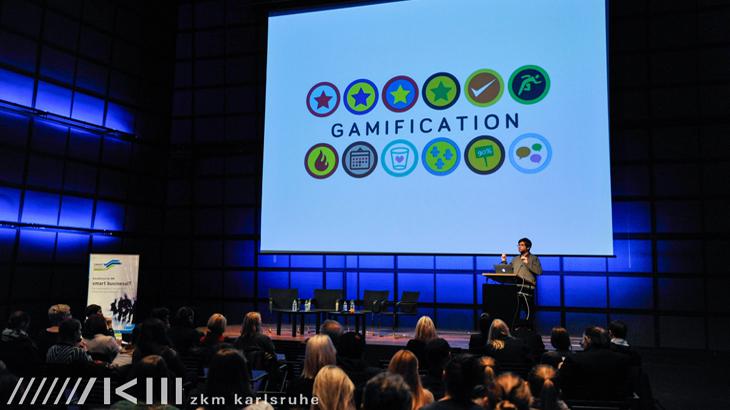
Santiago Siri is author and entrepreneur, and works as web and game designer. He founded his own computer games company at the young age of seventeen. In his lecture he campaigns for the significance of the computer game for politically motivated projects. With Democracy Os he developed an Open Source platform, which facilitates participation in democratic processes in a playful manner.
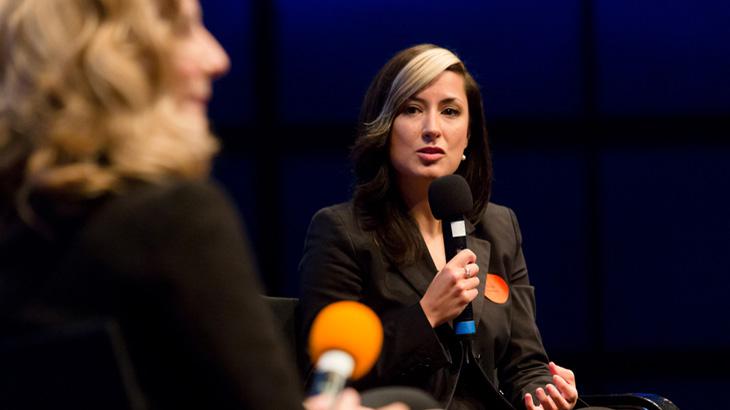
»Everything is Digital – Culture is Digital«, says communication scientist Nadia Zaboura. Zaboura works as political advisor, author and host - for clients such as Media Authorities, Gamescom Congress or Federal Ministries. She is also a member of the jury of the Grimme Online Awards. By way of carefully selected examples, she points out the essential factors for successful communication on the net: the structure of communities, the up-to-date cultural mediation by way of moving images, the use of social media and networks, the opening of the content for innovations, openness for remix and further development, the active integration of fans and other influential persons, which aim at and create the multiplier effect and new target groups.
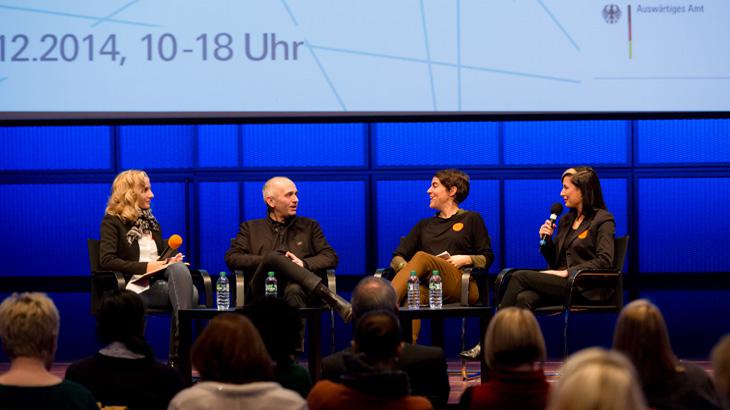
Hybride World: Digital and Analog
The ten examples of best practice that were presented in short impulse lectures make clear precisely what lays behind all these factors and how they can be filled with life. Thus, Dr. Stephan Schwingeler (ZKM | Karlsruhe) presents the permanent exhibition Gameplay and analyses the significance of the computer game as an artistic good. Julia Jochem also works at the ZKM, and is responsible for the project AppArtAward. With the AppArtAward she presents a competition which awards prizes for artistic applications. In cooperation with internationally located Goethe Institutes, the world the exhibition »AppArtAward 2014 – Highlights« travels around the world.
Once everything has been digitalized, will analog exchange become obsolete? On the contrary, argue Jeanne Vogt, curator at NODE – Forum for Digital Arts and Alexander Scholz, author at Creative Applications and founder of HOLO Magazine. In their opinion, analog and digital worlds are not diametrically opposed, but are complimentary. Both the NODE as well as Creative Applications are networks the members of which communicate and exchange via digital channels, but also in the framework of conference.
Always be curious, open and in movement. These are the key characteristics which Dianne Drybay of wearemuseums emphasizes and reinforces by way of examples. »Employ a well-known blogger on Instagramm and give him free access to museum spaces for the free development of photographs« was one of his concrete proposals for reaching new groups. Antje Lange of the Pinakotheks managed to achieve just this: With the project #MyRembrandt, she demonstrates impressively how digital strategies do not have to be expensive to be successful. A replica of Rembrandt, a “selfie in oil” was sent on a journey. In Antje Lange’s words: #myRembrandt opens up the museum to the public, thereby also making it possible for digital museum visitors and those less interested followers of art in their everyday lives to have direct participation in the educational process of art.
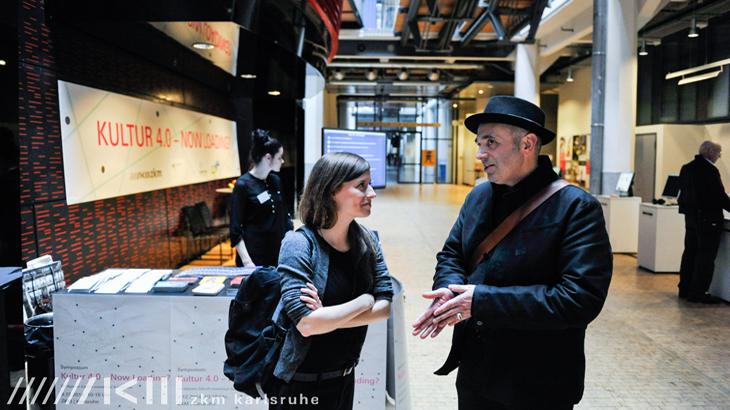
What the museum of the future could look like is shown by Contemporary And the Institut für Auslandsbeziehungen (ifa), as well as ArtOnYourScreen, the ZKM online exhibition platform. Julia Grosse, chief editor of the platform Contemporary And, shows how a virtual space for the exchange between artists, curators and art historians might look like by way of art spaces. In addition to the possibilities of presenting digital art, Carolin Clausnitzer (ZKM | Karlsruhe) illustrates the chances and approaches of digital art education.

The mediation of cultural values and the acquisition of languages in new digital and emotional ways comprise the subjects treated by Márcio Bueno – It Manager at FCB Brazil. With the platform Speaking Exchange, a platform was developed which connects the visitors of an English language school in Brazil with the inhabitants of a retirement home in the USA.
The most complex digital dialog is presented by Laure Siegel, by way of the ARTE project ARTE Refugees. Packaged in the format of a »News Games«, the reporter becomes reporter of a refugee camp.
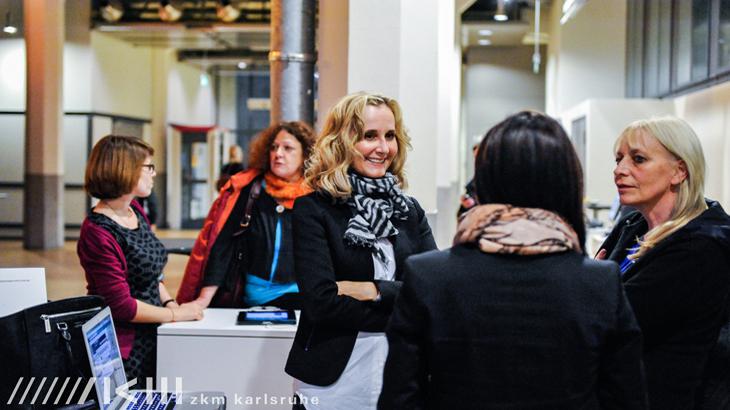
As diverse as the presented examples were, they all shared the common wish for innovation and the courage for experimentation. Hopefully, these impulses will also be the initial sparks for new cooperation, concepts and a change of policy, which will also be anchored at a political level. The thematic relevance of the symposium can be seen in the participant’s and speaker’s enthusiasm, as well as in the reactions that were sent via Twitter: 600 critical comments were sent out and requested via Hashtag #kultur40.
Let’s get digital!
Text: Julia Jochem
Barbara Wolf wrote the detailed reports for us …
#Kultur40 – NOW LOADING? | SUMMARY | PART 1
#Kultur40 – NOW LOADING? | SUMMARY | PART 2
#Kultur40 – NOW LOADING? | SUMMARY | PART 3
